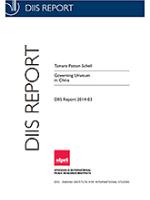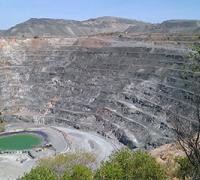Governing Uranium in China
Nuclear power is playing an increasingly prominent role in China’s long-term strategic energy calculus. In response, China is responding by producing more uranium domestically, buying more uranium on the international market, and investing heavily in overseas uranium properties.
At the same time, China has been updating its nuclear regulations over the last three decades, resulting in a myriad of regulatory agencies with widely varying responsibilities related to implementing uranium regulations. Many of these regulatory agencies have issued sets of their own regulations on uranium both within China and overseas. Over the years, this has resulted in a tangled web of overlapping regulations, some of which extend to uranium ore concentrates (UOC) and other primary uranium products and some that only cover uranium at later stages of the fuel cycle.
This report on China’s governance of natural uranium is the first of its kind to untangle the web of Chinese regulatory bodies, regulations and policies that currently exist. It raises questions of clarity in national definitions, which body is the ‘ultimate authority’ on uranium and how China’s is able to adapt its regulatory structure to its ‘two markets, two resources’ strategy for uranium acquisition.
The China country report is part of the larger global ‘Governing Uranium’ project on uranium governance, led by DIIS, which seeks to identify governance gaps in uranium accountability and control and provide policy recommendations for improving front-end transparency, security, and regulation.



